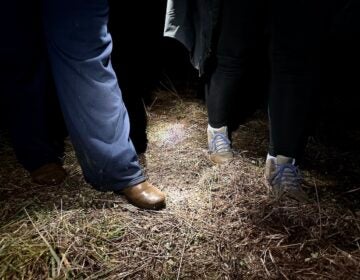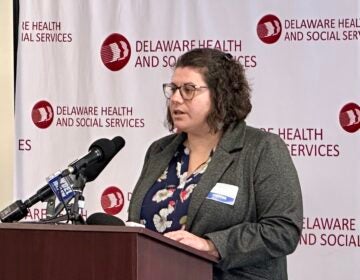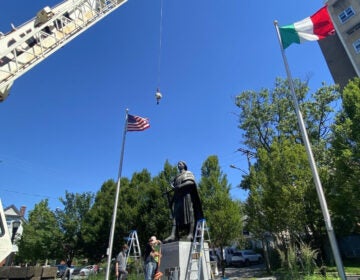As hate crimes rise, Delawareans join national ‘United Against Hate’ initiative for dialogue
“One of our main goals," said assistant U.S. attorney Tiana Sampson, "is to start building that trust."
Listen 1:27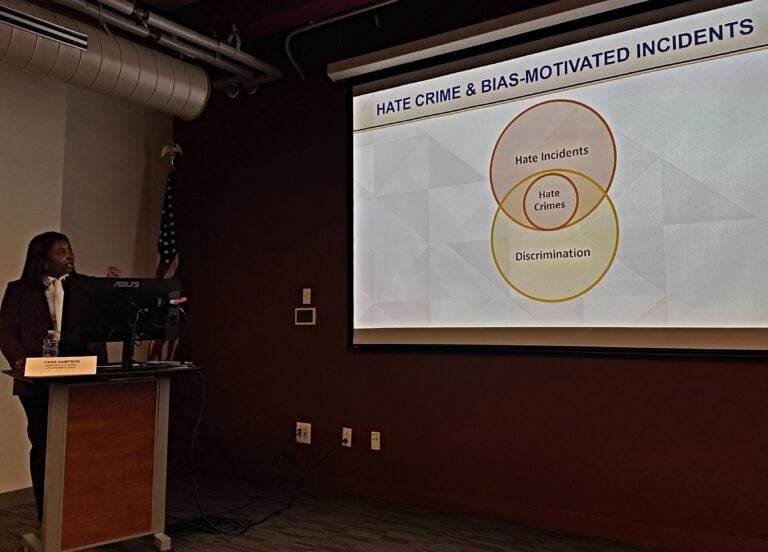
Tiana Sampson of the U.S. Attorney's Office clarifying the distinctions between hate, discrimination, and when an act crosses into a hate crime. (Johnny Perez-Gonzalez/WHYY)
Hate crimes are on the rise nationally. That’s according to numbers from the FBI, which reported a 7% increase in 2022, the most recent year numbers are available for.
In recent years, there have been incidents ranging from attacks on synagogues to the tragedy at Club Q in Colorado Springs, and numerous hate incidents targeting the Asian American Pacific Islander community.
In response to this troubling trend, the U.S. Attorney General Merrick Garland launched the ‘United Against Hate’ initiative in 2022 to combat unlawful hate acts. Over the past two years, every attorneys general office around the country organized UAH events, mobilizing communities against hate.
Recently, Delaware joined the cause at Dover’s Public Library, reaffirming its commitment to tolerance and community dialogue.
Despite Delaware’s relatively lower incidence of hate crimes compared to other regions, Tiana Sampson, an assistant U.S. attorney at the U.S. Attorney’s office, underscores the imperative of continued vigilance. She emphasized that even in the First State, there remains important work to be done to address and prevent such incidents.
“Hate crimes are on the rise. We want to improve reporting, and so these outreach events are to ensure that, number one, the community understands what a hate crime is and what it isn’t,” she said. “One of our main goals is to start building that trust and that dialogue with the community so that in the event that something happens they know where to turn and who to call.”
Recently, the office hosted a forum in Dover to discuss the issue and what’s being done.
Dover Police Officer Nathaniel Warren talked to the group about common hate crimes seen in Delaware.
“The most common forms of hate crimes occur in this order: persons, property and then society,” he said. “You can also see these vulnerable targets or groups that are being targeted through minority groups such as the Jewish, Muslim, Palestinian and Asian communities, as well as the LGBTQ+.”
Another panelist, Nicole Mozee, offered her first-hand insights as a former deputy attorney general at the Delaware Department of Justice, who now serves as an assistant professor at Wilmington University School of Law. She recounted investigating three cases of alleged hate crimes involving young people.
“Kids as young as 12 and 13 were writing targeted messages, setting a fire on the porch of an LGBTQ+ couple saying ‘your degenerate ways are not welcome here,’ putting that family in danger. Another at a high school here in Delaware, taking a black mannequin head, hanging it from a noose in a custodial closet of a black employee at the high school,” she said. “Another incident on social media, and unfortunately, it was a very targeted and threatening conversation towards an Asian American student in this particular chat that our office had to grapple with and figure out what to do.”
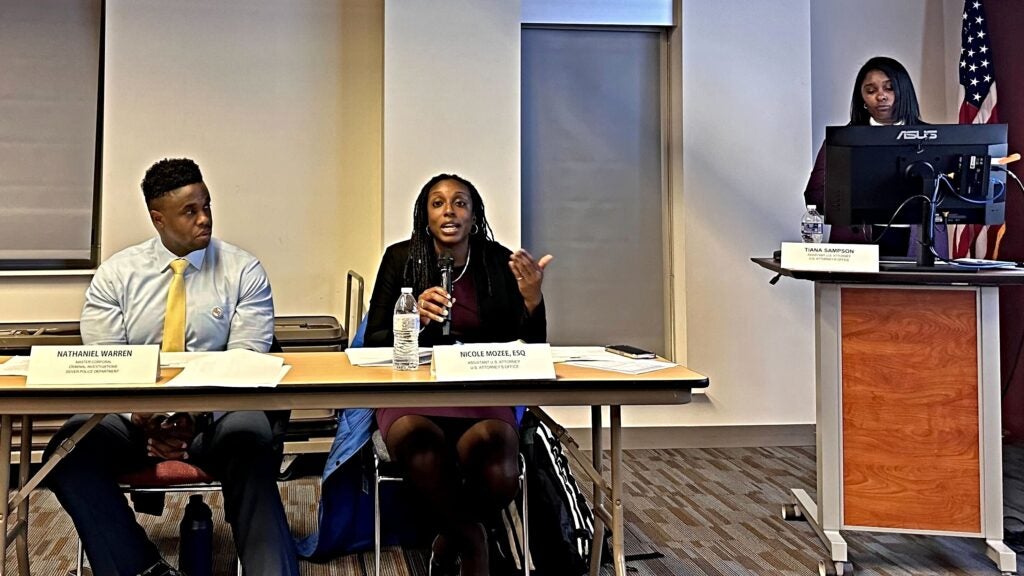
Retired teacher Cindy Christiansen spoke during the Q&A about her experience as a retired teacher who now substitutes at various elementary schools
“When you try to talk to them or you hear them talk to another child, it has nothing to do with color. To me, I think it has to do with a human being. And they do not know how to play anymore. They’re quick to argue. ‘It’s mine.’ ‘It’s your fault,’” Christiansen said. “They don’t talk anything out and that really bothers me because it’s going to escalate and escalate and escalate.”
Her primary focus in joining the forum was to seek solutions and initiate conversations with state and federal leaders on how to address this issue, specifically advocating for increased mental health services.
“[I am here] to basically listen, find out what the state and the federal government are doing to eliminate it — which obviously it’s not going to happen overnight — but also to find out what they’re doing about the very younger generation from K-8 students,” she added. “They’re so vulnerable right now that they listen to everything that’s at home. Whether it’s positive or negative, unfortunately a lot of it’s negative.”
State and federal leaders had three requests for community members: To get involved with the community and organizations tied to combating hate crimes, to utilize services and to report all hate or discrimination.
WHYY is your source for fact-based, in-depth journalism and information. As a nonprofit organization, we rely on financial support from readers like you. Please give today.



